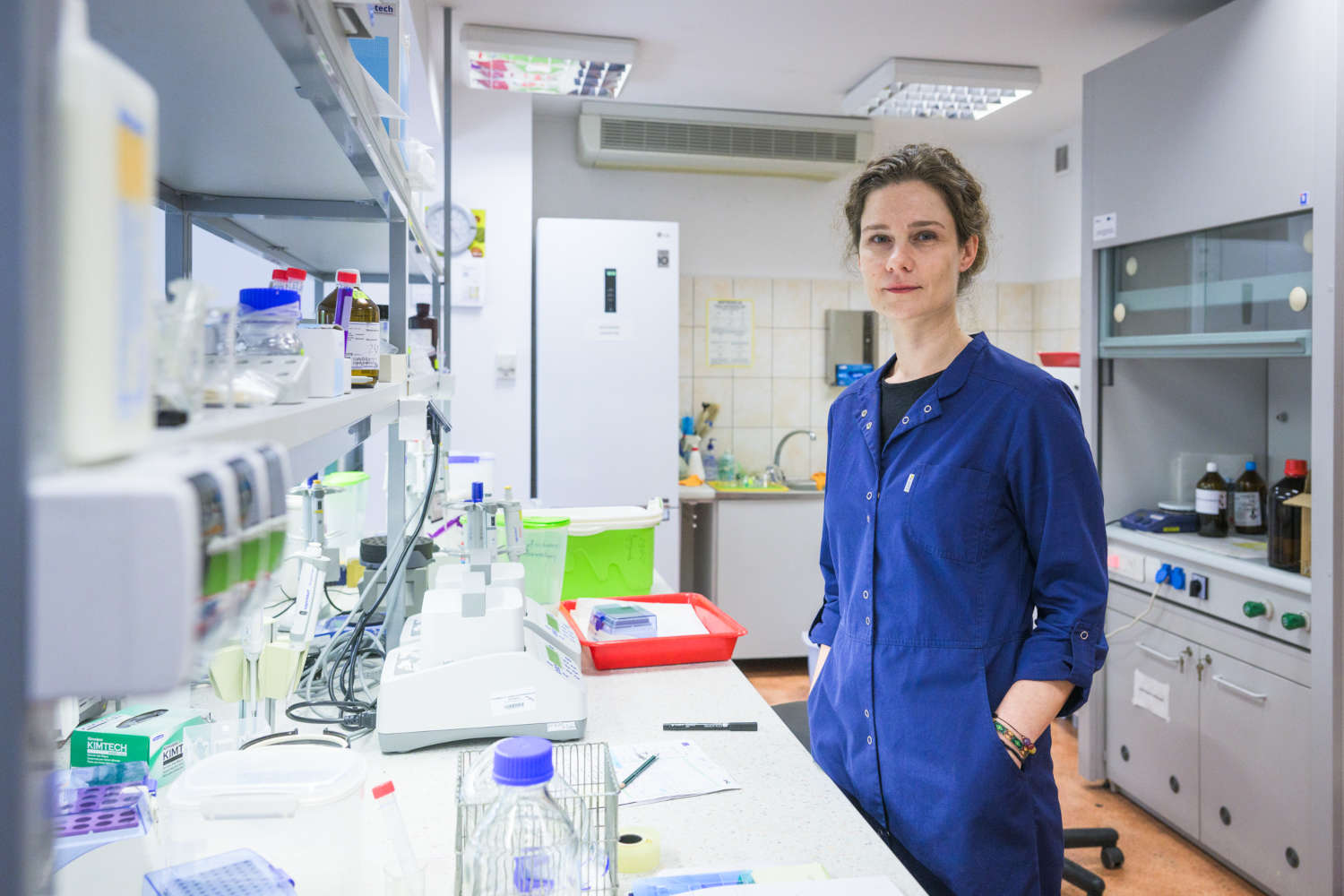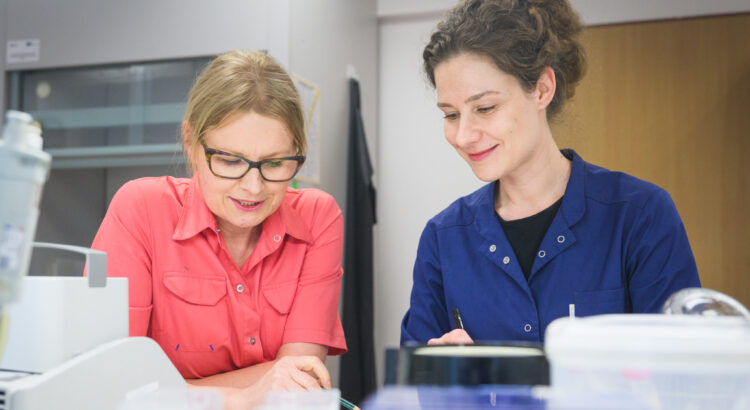On a macro scale, animal bodies are already well known to humans. However, when we descend to a lower level – to the micro scale – it becomes clear how many puzzles there still are. Dr Anna Majewska from the Institute of Animal Reproduction and Food Research of the Polish Academy of Sciences in Olsztyn has contributed to the completion of this knowledge. She characterised a protein discovered a few years ago called SNAD1, which turned out to be a new important player in fish immunology.
– A new protein called SNAD1 from the AID/APOBEC group of proteins may revolutionise our knowledge of fish immunity, shedding new light on all previously known mechanisms that fish use to fight pathogens and adapt to their environment. It is also a potential tool for the rapid detection of diseases in fish and for monitoring their welfare – emphasises Dr Anna Majewska from the Department of Gamete and Embryo Biology of the IARFR PAS in Olsztyn.
The SNAD1 protein was discovered in 2018 (initially under a different name) by Dr Mariola Dietrich, also from the IARFR PAS. This discovery resulted in further research, led by Dr Anna Majewska, in collaboration with scientists from the Institute of Bioorganic Chemistry of the Polish Academy of Sciences in Poznań, and the University of Veterinary Medicine Hannover, Germany.
This protein belongs to an interesting group of proteins that mutate the genetic code. – During evolution, a whole range of different mechanisms have evolved that could repair errors (mutations) in our DNA or RNA. And this group of proteins does the opposite: it causes these mutations! But it alters the genetic information in the nucleic acids in such a way as to give rise to specific antibodies that are capable of attacking or inactivating viruses or bacteria – explains the researcher.
This occurs in the biochemical process of deamination of cytidine to uridine catalysed by SNAD1. Deaminases are enzymes, and cytidine and uridine are biological active substances involved in cellular metabolism. Everything takes place within the nucleic acids, which store the organism’s genetic information and mediate protein production.
This protein is found in a variety of fish species. Thirteen of its variants have been demonstrated in carp, indicating its multifunctional role.

– In our study, we found that the SNAD1 protein is sensitive to a change in temperature to cooler temperatures – in which case its expression increases by up to a thousand-fold. This also happens in response to exposure to a virus or bacteria. This indicates that the protein plays an important role in immune processes. Thus, if a fish becomes infected with a bacterium or virus, the protein is involved in the host defence process by encoding genes in the RNA in such way that they produce an antibody to the specific pathogen – says the researcher.
In a paper recently published in the journal Frontiers in Immunology, the researcher showed that the SNAD1 protein is involved in immune processes. However, it is necessary to understand it in more detail, among other biochemical aspects. Further research steps in this direction are already planned.
Once the SNAD1 protein has been further characterised, it could in future be used as a marker of fish welfare.
– If we know that the expression level of this protein increases in specific situations, we will be able to react immediately and stop the disease at an early stage. This could contribute to more efficient fish breeding and be a potential tool for treating various types of diseases through genetic engineering,” points out Anna Majewska.
—
The research was conducted as part of a project from the NCN OPUS 22 competition entitled „In search of the role of carp cold acclimation protein 31 (Cap31) – a new player in fish immunity against microbes?”, led by Prof. Andrzej Ciereszko – head of the Department of Gamete and Embryo Biology of IARFR PAS in Olsztyn.
Dr Lucyna Budźko and Prof. Marek Figlerowicz from the Institute of Bioorganic Chemistry of the Polish Academy of Sciences and Dr Mikołaj Adamek from the University of Veterinary Medicine Hannover (Germany) participated in the described research on the SNAD1 protein.
